Photographs: Reuters
We can no longer be complacent in the belief that everything that needs to be done to assure nuclear safety has been done and there is nothing to worry about, says B Raman
Our hearts go out to the people of Japan at this hour of their national tragedy which is also a global tragedy. It has deeply affected all of us.
The world has seen massive tragedies of a traumatic nature in the past but the Japanese have suffered is a series of multiple tragedies -- quake, tsunami and dangers of nuclear contamination following an explosion in a building housing a reactor of a nuclear power station at Fukushima.
To quote from a BBC report on the subject, "An estimated 1,70,000 people have been evacuated from the area around a quake-damaged nuclear power station in north-east Japan that was hit by an explosion, the United Nations atomic watchdog says. A building housing a reactor was destroyed in Saturday's blast at the Fukushima No.1 plant."
Japan's confidence is shaken
Image: Tokyo Electric Power Co's Kashiwazaki-Kariwa nuclear power plant is seen in Kashiwazaki in this July 18, 2007 file photoFrance and Japan have a high reliance on nuclear power. The design and construction of nuclear power stations in Japan have always taken into account likely dangers from quakes and tremors.
People, who raised questions about their safety, had always been assured by the Japanese experts that there would be no danger of an explosion or radio active leakage in case of natural disasters.
Their confidence in the safety of their nuclear power stations is likely to be shaken as a result of this explosion. Public opposition to the reliance on nuclear power stations could increase as a result of the explosion -- particularly in Japan itself, China and even India.
The Fukushima blast should not be exploited
Image: Fukushima Nuclear Plant reactor number 1 Daiichi facility is seen in Fukushima Prefecture, northeastern Japan, March 12Photographs: Reuters
Our conventional wisdom and assumptions regarding nuclear safety during natural and man-made disasters need to be reviewed urgently in the wake of the Japanese explosion. We can no longer be complacent in the belief that everything that needs to be done to assure nuclear safety has been done and there is nothing to worry about.
The Fukushima blast should not be exploited to undermine our confidence in the importance of nuclear power. At the same time, it is important to question our confidence in the adequacy of the safety measures taken till now.
How about the dangers of a man-made disaster?
Image: A nuclear power plant in ChinaPhotographs: Reuters
Fukushima was the result of a natural disaster. How about the dangers of a man-made disaster -- such as some suicide bombers forcing their way into a nuclear power station and trying to blow it up?
I had in the past raised this issue in many seminar, at meetings of the National Security Advisory Board and the Special Task Force for the Revamping of the Intelligence Apparatus, when I was a member of both in 2000-02.
The Fukushima explosion should be of great concern
Image: The atomic power plant in TarapurThe stock answer I used to get was that our nuclear experts were aware of this danger and had taken necessary precautions. I could understand their reluctance to spell out these precautions, but it is important to revisit them urgently.
The Fukushima explosion should be of great concern to the whole world -- not just to the Japanese people. Over-confidence in our security measures will be suicidal for the world.

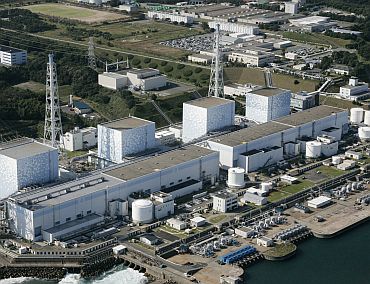
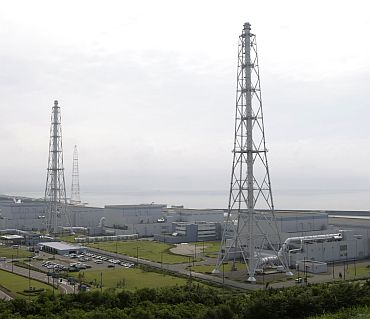
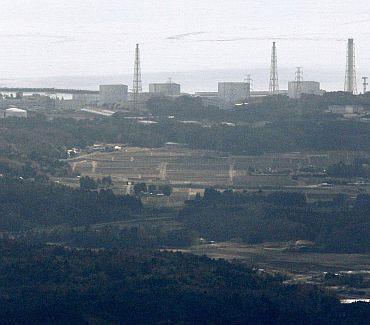
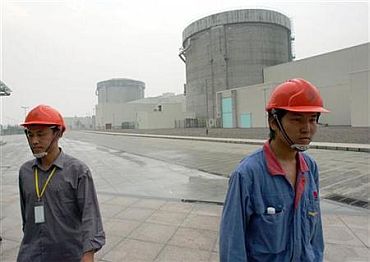
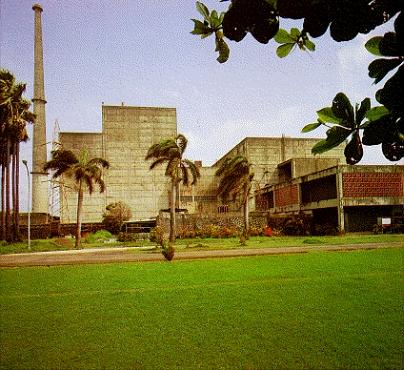
article